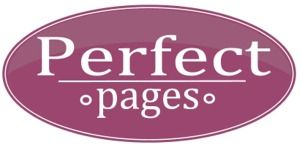Finished writing that document? Before you hit Send, find out why you need to review your work before you publish.
Who should edit my book?
Choosing your editor, be it for your book, thesis or business blog, takes thought. Consider: qualificationsIt's been easy for someone to say 'I was good at English at school, I'll be a good editor'. Things have changed since then: common usage, readers' expectations and new ways of communicating over-ride so many of the 'old rules'.Ask … Continue reading Who should edit my book?
Must be doing something right …
Editors fine-tune your writing.
Plain English – what are the business benefits?
Your nonfiction writing will shine when you include principles of Plain English.
![]() Laura Ripper | Copy-editing and Proofreading
Laura Ripper | Copy-editing and Proofreading

If you run a business, you probably know that customers appreciate clear communication. They want to be able to find important information quickly – for example, about products and services, how to find you or how to return an item they’ve bought. Direct, concise and jargon-free text saves them time, frustration and effort. It gives your customers a better experience of working with you.
But what are the benefits for you – and your company? How can writing in plain English help you achieve your business goals, such as making a profit or building your brand? Is communicating clearly anything more than ‘doing the right thing’?
Using plain English can help your business in three main ways:
- It saves money
- It saves time
- It builds your reputation
It saves money
– and it makes money, too.
If your marketing materials, letters and newsletters present information clearly, your customers are more…
View original post 838 more words
What’s wrong with the passive voice?
Ways to reduce stuffiness in business and nonfiction writing.
Perhaps it’s time to check your writing – and ask for help if you need help coming up with non-stuffiness.
Michael Gove, the Education Secretary, has joined the Campaign Against the Passive Voice. He follows in the footsteps of Strunk and White (whose section on the passive voice, while more nuanced than many people recognise, is calamitously misleading) and of George Orwell (who complained about the passive while using it extensively himself, even in the same sentence as his complaint).
The campaign isn’t wholly wrong, but it goes too far and it doesn’t properly understand the problem. The passive voice is often better than the active, and its overuse is usually a symptom of something else.
What’s the difference?
Roughly: in the active voice, the agent performing the action is the grammatical subject of the sentence and the recipient of the action is the grammatical object. The passive voice switches this around, making the recipient of the action the grammatical subject and the agent the object. Passive verbs are formed…
View original post 1,106 more words
Is “Alright” Ever Alright? – Guest Post by Kathy Steinemann…
Useful insights primarily for fiction writers, although we nonfiction writers and editors will learn something too.
Enjoy … and share your comments.
![]() Chris The Story Reading Ape's Blog
Chris The Story Reading Ape's Blog
 Image Source: Dictionary.com
Image Source: Dictionary.com
According to EtymOnline.com, alright was attested in print by 1884.
Writers argue about its use. Some insist it’s appropriate, while others stand on the no-nada-nix-never soapbox.
Who is correct? This post will try to clear the confusion.
What do the experts say?
I searched several sources and found the following results.
No, alright is unacceptable.
– Painless Grammar, by Rebecca Elliott, PhD
– The Chicago Manual of Style
– AP Stylebook
– Lapsing into a Comma, by Bill Walsh
All right is the only form listed.
– The Synonym Finder, by J. I. Rodale
– Elements of Style, by William Strunk Jr.
Alright is informal or nonstandard and less acceptable than all right.
My hunt through several Ray Bradbury e-books found no instances of alright.
After more research…
View original post 924 more words
Publishing: getting the word right
Writing and editing are intertwined. Tips to help you understand how.
So what am I supposed to check?
My answers to 'You tell me I need to edit my work. But what do I need to check?'
Edit, proofread, review…
Editing is the final process before sending your writing into the big, wide world. 'But, why? And how?' you ask. Read on for my tips.
Avoiding The Rush Job
‘Proofreading, editing or indexing a document isn’t done by a computer program, it’s carried out by an actual human being.’
![]() Sara Donaldson | Northern Editorial
Sara Donaldson | Northern Editorial

Many is the time I’ve had to say no to a job.
It was not because I didn’t want to take the client on – sometimes I’ve kicked myself because the job was right up my street. It also wasn’t due to a full calendar. It was because the timescale was so ridiculously short I wouldn’t have had time to do the job needed.
Let’s elaborate…
Proofreading, editing or indexing a document isn’t done by a computer program, it’s carried out by an actual human being. Asking a professional to carry out some work on a book assumes a couple of things:
- The professional has enough time to read through the document
- The professional has enough time to digest what has been written
- The professional has enough time to carry out the task at hand.

Take for example a straightforward proofread (not an edit) of a 100,000 word document:
The…
View original post 812 more words






